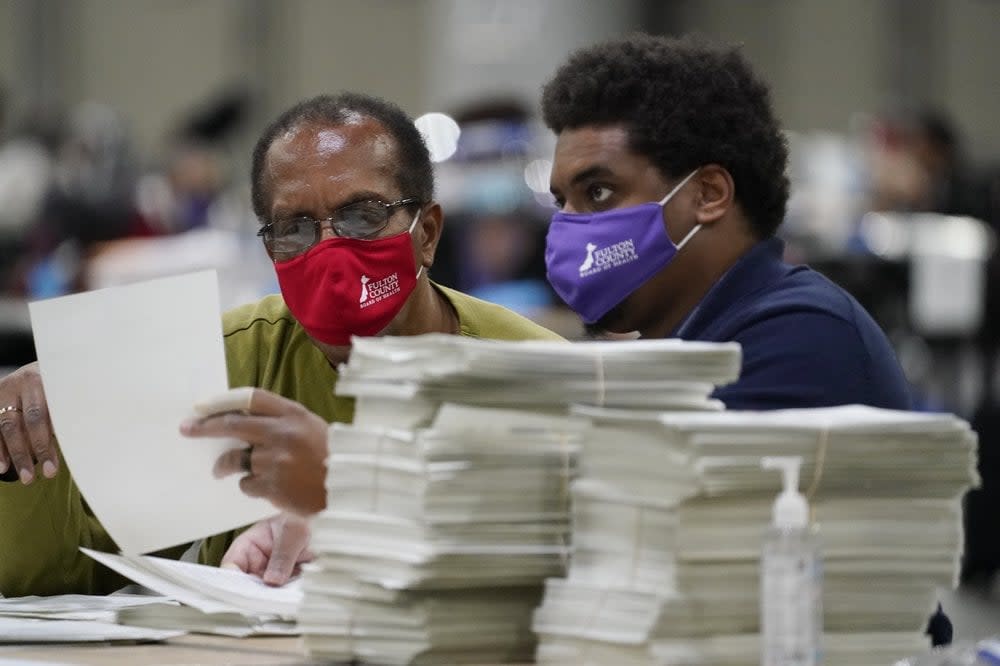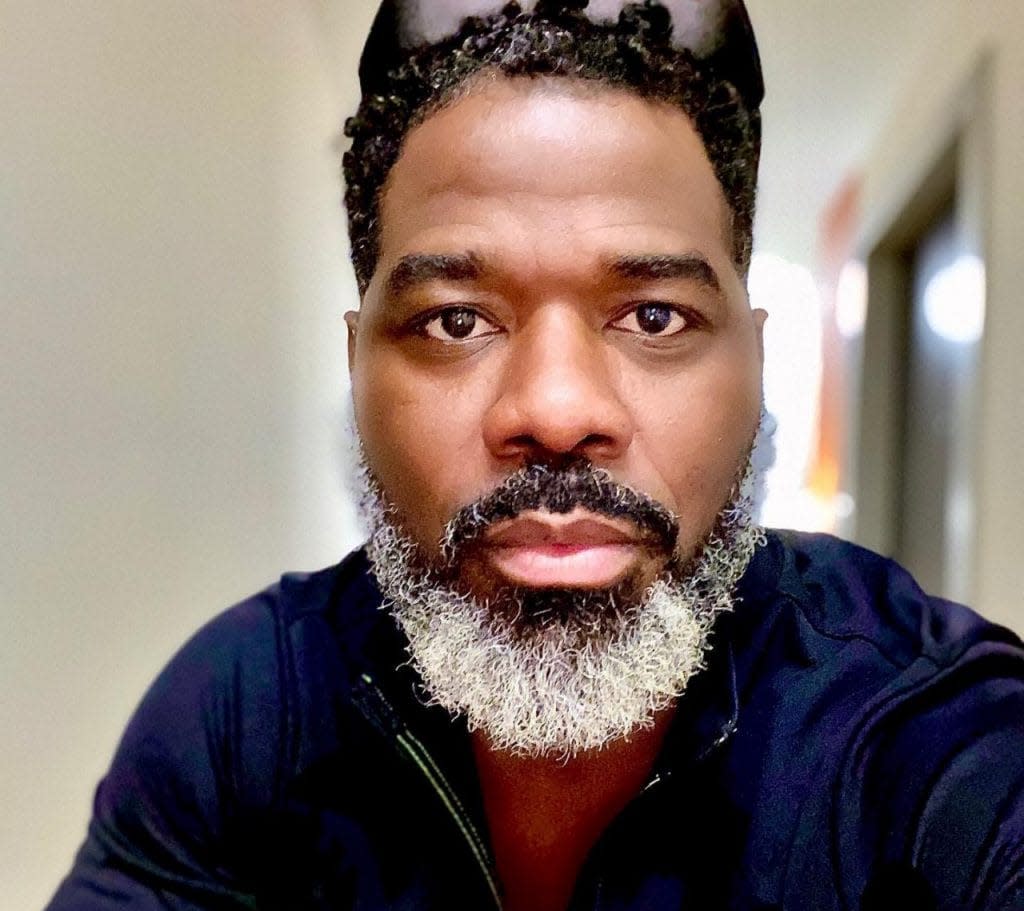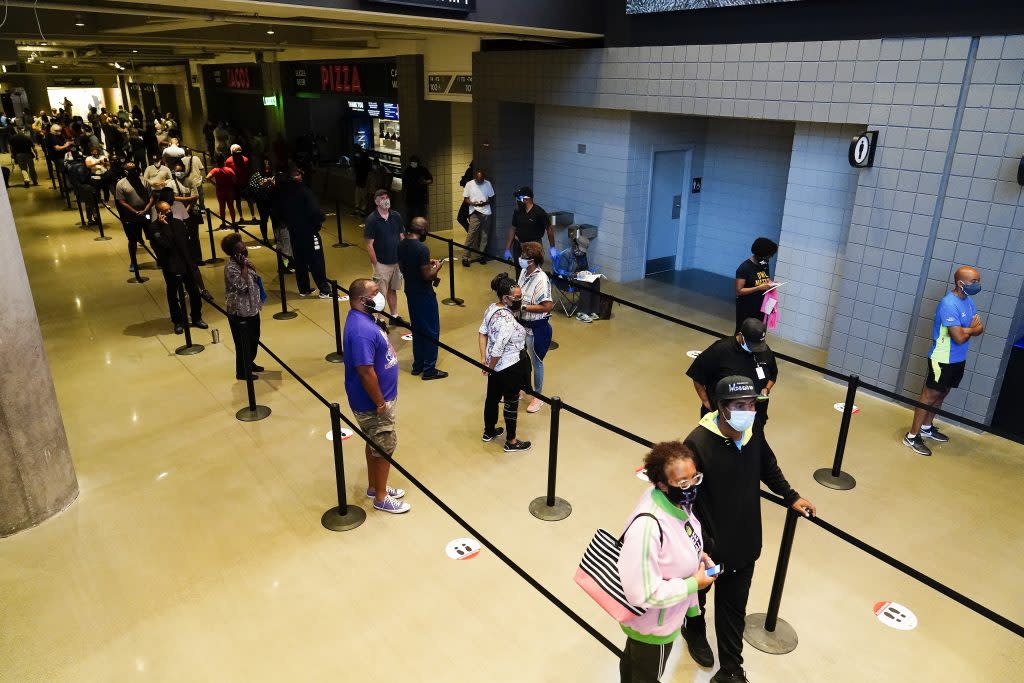Black Male Voter Project fighting to show political system that Black men’s vote is year-round effort
Political consultant Mondale Robinson is working toward ensuring the relationship between Black men and voting is more consistent
Fresh off the heels of the 2020 election cycle, Americans had the awakening of the importance of voting in both presidential and midterm elections; a trend that has been building over time.
According to research conducted by The Brookings Institution, the November 2018 midterm elections for House of Representatives candidates had 115.1 million votes cast, a 5% increase from the 79.2 million votes cast in the 2014 election. They also confirmed that “higher voter turnout persisted into the four special elections held in 2019 as well.”
Historically, women have had slightly higher rates of voter turnout in every U.S. presidential election since 1984. When we look at eligible voters by race, Black women have also had higher voter turnout in comparison to Black men. The Pew Research Center reported that “in 2016, 64% of eligible Black women said they voted, compared with 54% of Black men.” Mondale Robinson, the founder of the Black Male Voter Project, is working to increase the number of Black men who participate in electoral politics and beyond.
Read More: Watchdog probes if DOJ officials tried to overturn election
Robinson is the National Political Director for Democracy for America, as well as a political contributor for The Village Celebration and a political consultant. With 20 years of political consulting and political work experience, he founded the Black Male Voter Project after repeatedly witnessing white political consultants mismanage the motivations behind Black men’s participation in electoral politics.
He shares, “The Black Male Voter Project was founded as a way to address all of the problems that are inherent in traditional campaigning, meaning the temporary way in which campaigns show up trying to convince Black men whatever candidates or party they are selling is the best candidate, or it’s the most important election. None of that reigns true, especially when you consider the lessons learned from Maslow Hierarchy and Needs that tells you, ‘A person or people without having their basic needs met cannot consider things that are self-actualization.’”

“Because of the way we present politics in this country, the way we play them in a temporary measure in an electoral cycle instead of having consistent relationships with people, they seem like self-actualization and not as tools to address what’s really ailing Black men.”
The Black Male Voter Project is here to make the relationship between Black men and voting consistent and more effective by communicating with Black men in a more permanent manner, doing the work year-round and not solely in election cycles. Robinson reveals that his organization is “presenting politics to Black men as a tool to address some of the things that are ailing them, not as an end all be all to all the problems ailing Black men.”
Based on statistics from voter files (digital databases that record who is registered to vote and who has voted in past elections), nearly half of the Black men in this country that are registered to vote have not voted in six consecutive federal elections.
Robinson emphasizes, “If you consider that number and we know the way to increase a groups’ participation is to spend more on their resources, why then is the Democratic party continuing to campaign the way they do? Especially when Black men, along with Black women, are their leading base voters yet the same consultants are getting all the money.”
Campaigns hire political consultants to help them strategize, reach specific voters, raise funds, as well as ensure voters are aware of the candidates’ party platform. Yet, it’s not BIPOC that are speaking to these voters. Robinson elaborates, “The Democratic party spent more than $11 billion on the general election. Democrats and Republicans spent another $800 million on the runoff, yet still, over 95% of that went to white political consultants and less than 5% went to consultants of color.”

Pew Research Data spanning more than 20 years asserts that BIPOC registered voters heavily skew Democratic, giving the party a major advantage. Robinson adds, “We are the majority of the Democratic voting block percentage-wise, yet still we get fractions of the money they spend on consultants to run the elections. This is how we fail epically. This is why we celebrate 65% and 70% turnout in election cycles as if that is something superior when you are spending money on voters that don’t really listen to your message or have not listened to your message in years.” He’s referencing white voters “who Democratic consultant clients chase after, conservative voters at that, instead of spending those resources on Black men.”
Robinson is proud of the work his organization has completed, specifically in this past election cycle. He divulges to The Grio, “We were in 17 states this cycle. Georgia is some of the most powerful work as it pertains to confirming what we already know at the Black Male Voter Project, and what we are trying to get the white consultant class and Democratic party to accept: you cannot approach people two months before an election cycle and expect to have successful efforts and high turnouts consistently.”
“By using our tactics, our BMVP approach, we were able to increase Black men’s participation in Georgia significantly. Of the 1 million Black men in Georgia that are registered to vote, 460,000 have not voted in six consecutive elections. Our program engaged all of those brothers. We engaged all 1 million Black men in Georgia, but we spent a significant amount of our time targeting those 460,000 Black men. What we were able to do through our program was to increase the number of those brothers that voted by more than 20%.”
He emphasized, “These 460K Black men had not voted in six consecutive elections, which means they didn’t vote when they had a chance for Barack Obama in 2008 or 2012, nor did they vote for Stacey Abrams in 2018. We were able to move that demographic to the polls this election cycle—144,000 in the primaries and then in the general election, 104,000 came back out.”

While Robinson has yet to receive all the numbers by demographic for the runoff, he’s confident that this is the highest voter turnout for Black men. If the 2020 election cycle taught us anything, it’s undoubtedly that it’s essential to engage our Black voters if we truly want to enact change and have the opportunity to shift policy in ways that benefit Black constituents.
Even though the 2020 election is over and we have a Democratic president, as well as control of the House and Senate, the work is not yet done. The Black Male Voter Project will continue to engage Black male voters and address problems that are ailing Black men on a daily basis. They are still doing electoral work, currently focusing on Virginia, which has statewide elections. They are doing civic engagement and starting a national push to end qualified immunity. Robinson notes they are “showing the true power of Black men when they are engaged beyond the electoral process.”
Read More: New Georgia senators Warnock, Ossoff promise to carry on John Lewis’ legacy
The organization also has aspirations to create 17 vocational schools and partner with divinity schools to form a certification process for people who want to go into ministry. Robinson disclosed they are “mainly focusing on brothers coming out of the prison system so as to reboot their life in a way that does not have them back in the prison system or working in a meaningless job that does not allow them to provide for their family or be a productive citizen.”
In addition, they are doing a lot of training by teaching Black men how to be community leaders and form organizations themselves and “get involved beyond the voting box.” Robinson is focused on what he defines as the three top issues for Black men: adding trade back in schools “to remove ourselves from the racist hiring process that exists in employment,” adding protections against racist police departments and officers, and pushing the end to cash bail.
You can learn more about the Black Male Voter Project here and donate to the movement to further enact positive change.
Have you subscribed to theGrio’s new podcast “Dear Culture”? Download our newest episodes now!
TheGrio is now on Apple TV, Amazon Fire, and Roku. Download theGrio today!
The post Black Male Voter Project fighting to show political system that Black men’s vote is year-round effort appeared first on TheGrio.






